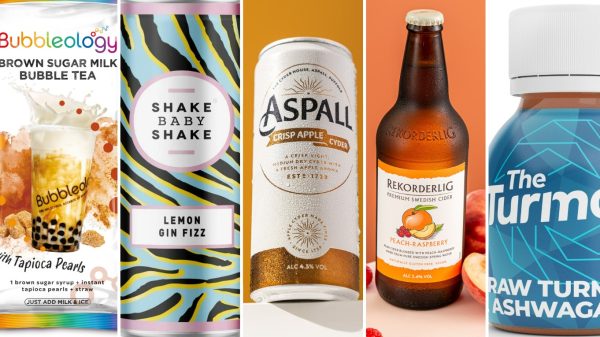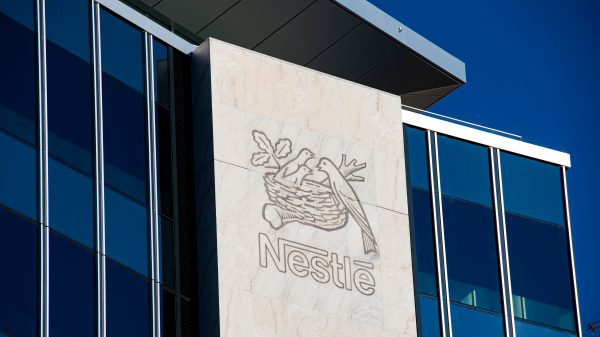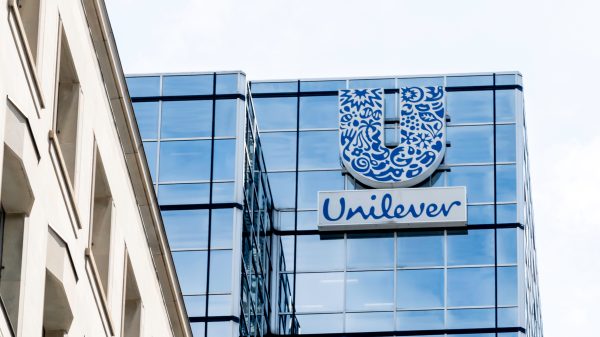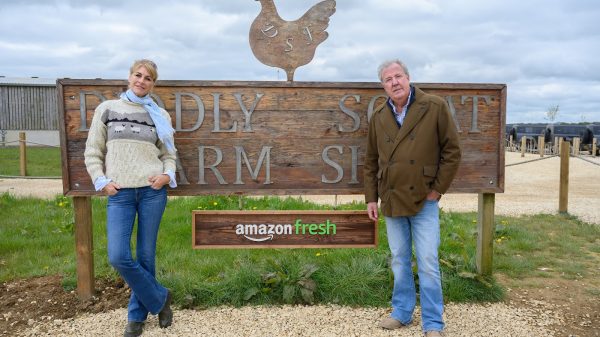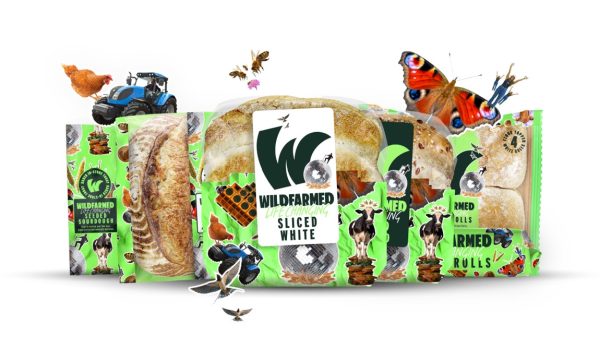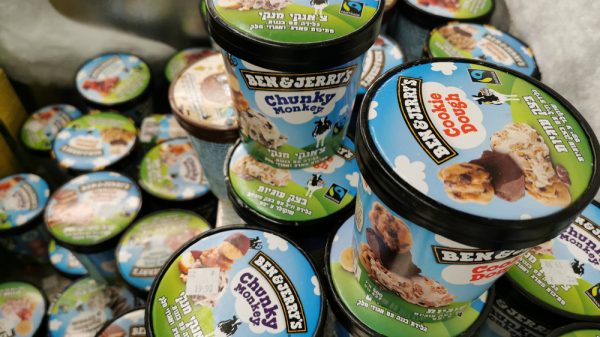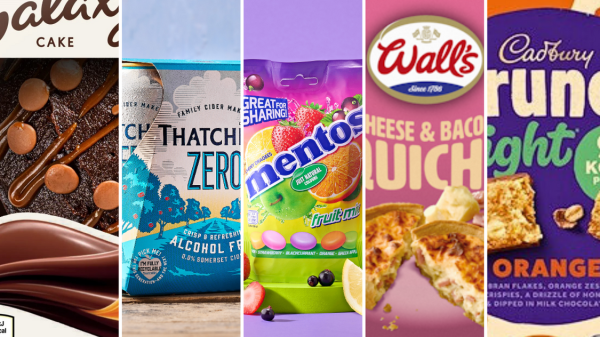Plant-based categories are struggling to maintain growth as cost pressures rise, with 73% of vegan shoppers actively trying to make savings on their grocery bills.
The past month alone has seen meat alternative brands suffering from slow sales and declining profits, struggling to find funding or ceasing trading entirely.
We take a look at five of the UK’s biggest vegan meat-free brands to see how the effects of the cost-of-living crisis are impacting them and where they are now.
Meatless Farm
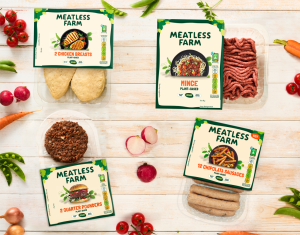
In May, plant-based meat alternative brand, Meatless Farm began seeking new investment, hiring advisers at Kroll, as it was just weeks away from running out of cash.
At the time, founder, Morten Toft Bech, said: “Operationally, Meatless Farm is doing really well but the cashflow squeeze is proving hard to manage given the short notice we have been given from the investor to solve it.
“It is a very sad situation for an otherwise good and healthy company with strong growth, and it is very stressful for our employees and existing investors.”
By June, Meatless Farm had made the majority of its workforce redundant and a notice of intention to appoint administrators was filed.
This came as it posted almost £50m in operating losses in the past three years, while sales steadily dropped to £11.2m in 2022, down from £12.5m a year before.
However, rival meat-free brand VFC rescued Meatless Farm in a deal that CEO Dave Sparrow said was a “golden opportunity” to merge the businesses and would “spark innovation in the plant-based food category”.
Following the takeover, the brand’s meat alternative mince, chicken breast and quarter pounder burgers have returned to shelves at Asda alongside its beef, red wine and porcini mushroom girasole, so-duja ravioli and new pork and apple sausage.
VFC
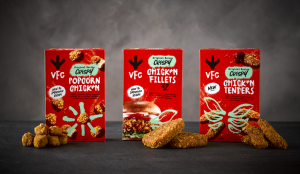
Alternative chicken brand VFC – or Vegan Fried Chick*n – first launched in 2020, created by chef and restaurateur, Adam Lyons and founder of the Veganuary movement Matthew Glover.
In the past three years, the meat-free brand has achieved listings in Tesco, Asda, Sainsbury’s, Morrisons, Ocado and Waitrose, and has a continually growing product portfolio.
In January 2022, VFC secured £7.5m in a seed round led by Veg Capital, following £3 million in funding that was raised prior.
At the time, Glover said: “There has been huge interest from investors and we’re very grateful for that.
“By working with Veg Capital we’ve been able to focus purely on scaling the business as fast as possible to take advantage of the opportunity.”
Last November, the brand launched a ‘More Meat-Like’ range, including plant-based chicken tenders, spicy fillets and its first product for kids.
More recently, it unveiled its first chilled chicken alternative in Asda, featuring Original Crispy Chick*n Fillets and Piri Piri Chick*n Wings.
On top of this, VFC saved Meatless Farm in June as it entered administration.
Beyond Meat
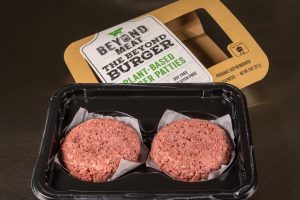
Last year, US-born brand, Beyond Meat expanded its products in the UK, rolling out its Beyond Burger across 2,000 new retail distribution points via Tesco, Sainsbury’s and Asda.
However, this week the meat-free brand revealed that sales had plunged by almost a third in its second quarter.
Beyond Meat said it had been hit by “softer demand in the plant-based meat category, high inflation, rising interest rates, and ongoing concerns about the likelihood of a recession”.
CEO Ethan Brown said it had also been hit by increased scrutiny on the health products of meat substitute products.
“This change in perception is not without encouragement from interest groups who have succeeded in seeding doubt and fear around the ingredients and process used to create our and other plant-based meats,” he said.
Questions have been raised about the highly processed nature of such products.
Brown said: “We’re going to be much more aggressive in our marketing. It is an education issue. The facts are there. The health benefits of our products are very strong.”
“We remain steadfast in our belief that plant-based meat, and Beyond Meat specifically, will play an important part of the global response to a climate crisis that appears to be rapidly intensifying.”
However, for the current year it expects to deliver far lower sales for 2023 at £283m to £299m, down from original expectations of £295m and £326m.
LoveSeitan
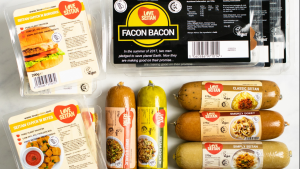
Plant-based meat alternative brand LoveSeitan, which first launched in 2017, stopped trading this month after almost six years.
This came following slower than expected sales of its products.
The brand produced a range of seitan – a high protein meat substitute made from wheat gluten and water -products, such as Facon Bacon and Seitan Pepperoni.
It also supplied Aldi with meat-free pie, Sainsbury’s Plant Pioneers with pizza and No Steak Bake, and Tesco with No Meat Pie for the retailer’s Plant Chef own-label range.
Co-founder Steve Swindon said: “After almost six years, we are closing our doors. Tough market conditions and increasing costs have contributed to this but, at the end of the day, we could not convince enough people of the benefits of seitan.
“It has been an incredible journey and I’m grateful for every minute of it but it’s time to move on to something new.”
This
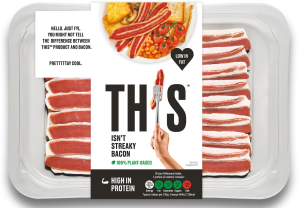
This first launched in 2019 and in its first two years the plant-based brand secured an initial crowd raise of more than £4m and £8.7m of seed funding, followed by an £11m series A round of funding in 2021.
As it looked to maintain its rapid growth across the UK and expand overseas, the brand has since raised £15m in a series B funding round which includes £4.7m raised on investment platform Seedrs last year, and more than £10m from institutional investors, including BGF, Lever VC, and Backed.
As of March this year, revenues stood at around £24m, with increased sales of nearly £2m in January as a result of the 31-day plant-based pledge, Veganuary.
Co-founder Andy Shovel said at the time: “We’ve managed to buck the miserable fundraising trend at the moment and close a fantastic funding round for the brand.
“Our investors’ confidence has predominantly come from our punchy growth and really strong R&D pipeline. We’ve also got lots of data to show we’re championing the recruitment of meat-eaters into the plant-based category, who haven’t shopped in it before.”
In June 2022, This launched its first frozen range, in July it unveiled its first food-to-go range with WHSmith and in August, the brand launched its first ambient snacking product with Hippeas.
Last September it entered into its fourth new category in a matter of months with a range of ready meals including This Isn’t Pork Meatballs and Spaghetti, This Isn’t Chicken Thai Green Curry, and This Isn’t Pork Sausages and Mash.

